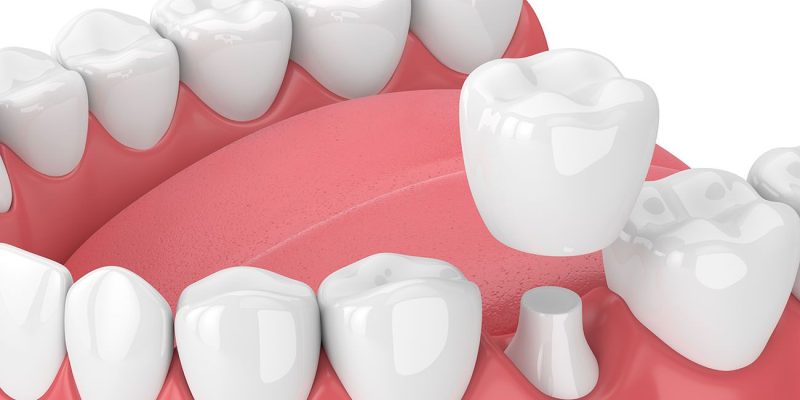For many people, a trip to the Tuckahoe dentist is a routine part of maintaining good oral health. But for others, the mere thought of sitting in the dentist’s chair triggers feelings of fear, anxiety, and even panic. Dental anxiety is more common than you may realize, affecting a significant portion of the population. Understanding the psychology behind this fear and learning how to manage it can help you take control of your oral health and eliminate unnecessary stress.
What Causes Dental Anxiety?
Dental anxiety stems from a combination of psychological, emotional, and social factors. For some, it may arise from a negative dental experience during childhood, such as a painful or frightening procedure. These unpleasant memories can create long-lasting associations between the dentist’s office and fear.
Others may fear the loss of control that comes with sitting in the dental chair. Being unable to talk or see what’s happening can make people feel vulnerable. Sensory factors, such as the sound of the drill, the smell of disinfectants, or the sight of dental tools, can trigger anxiety as well.
Some individuals may fear the potential pain or discomfort of a dental procedure, even if they have never had a negative experience before. The fear of embarrassment about the condition of their teeth or gums may also contribute, as they worry about being judged by the dentist or staff.
Symptoms of Dental Anxiety
The symptoms of dental anxiety can vary widely, from mild unease to full-blown panic attacks. Common signs include:
- Sweating or feeling flushed
- Increased heart rate or palpitations
- Difficulty sleeping the night before a dental appointment
- Nausea or upset stomach
- Shaking or trembling
- Feeling lightheaded or dizzy
- An overwhelming desire to cancel or avoid appointments altogether
If left unaddressed, dental anxiety can significantly impact oral health. Avoiding the dentist may lead to untreated cavities, gum disease, or other problems that can worsen over time. This, in turn, can reinforce the cycle of fear and avoidance, making routine care even more daunting.
Strategies for Overcoming Dental Anxiety
The good news is that dental anxiety is manageable. With the right strategies and support, you can face your fears and regain confidence in maintaining your oral health.
Here are some practical steps to help you overcome dental anxiety:
1. Communicate with Your Dentist
Open communication is one of the most effective ways to reduce dental anxiety. Dentists are trained to address patients’ fears and create a more comfortable experience. Talk to your dentist about your concerns before your appointment. Explain what aspects of the visit make you anxious so they can offer solutions, such as showing you the tools beforehand, explaining each step of the procedure, or allowing you to take breaks.
2. Practice Relaxation Techniques
Relaxation techniques can help calm your mind and body before and during a dental appointment. Deep breathing exercises, meditation, or progressive muscle relaxation are great options. For example, try inhaling deeply for four seconds, holding your breath for four seconds, and exhaling slowly for another four seconds. This helps lower your heart rate and shift your focus away from anxious thoughts.
3. Gradual Exposure to the Dentist’s Office
If your dental anxiety is severe, consider using a step-by-step approach to ease your fear. Start by visiting the office without scheduling a treatment, just meet the staff and familiarize yourself with the environment. On your next visit, schedule a simple, non-invasive procedure like a cleaning. Gradually working up to more advanced treatments can help desensitize you to the experience over time.
4. Use Distractions During the Appointment
Many dental offices now offer amenities like headphones, television, or music to help take your mind off the procedure. Bring something that brings you comfort, like a stress ball or a favorite playlist, to create positive distractions and reduce your stress levels.
5. Explore Sedation or Pain Management Options
Modern dentistry offers various options to help patients feel more relaxed during treatment. Sedation methods, such as nitrous oxide (laughing gas) or oral medications, can ease anxiety and make procedures more comfortable. Ask your dentist about these options and whether they might be right for you.
6. Seek Professional Help
If dental anxiety feels overwhelming or is deeply rooted in past trauma, therapy with a mental health professional may help. Cognitive-behavioral therapy (CBT), in particular, is effective at addressing phobias and replacing negative associations with healthier thought patterns.
Conclusion
It’s important to remember that you’re not alone in experiencing dental anxiety, and there’s no shame in seeking help. Dentists want to create a positive and supportive experience that prioritizes your comfort and health. By understanding the root causes of this anxiety and taking gradual, proactive steps, you can transform your experience and make trips to the dentist a manageable and even pleasant part of your self-care routine.








Comments